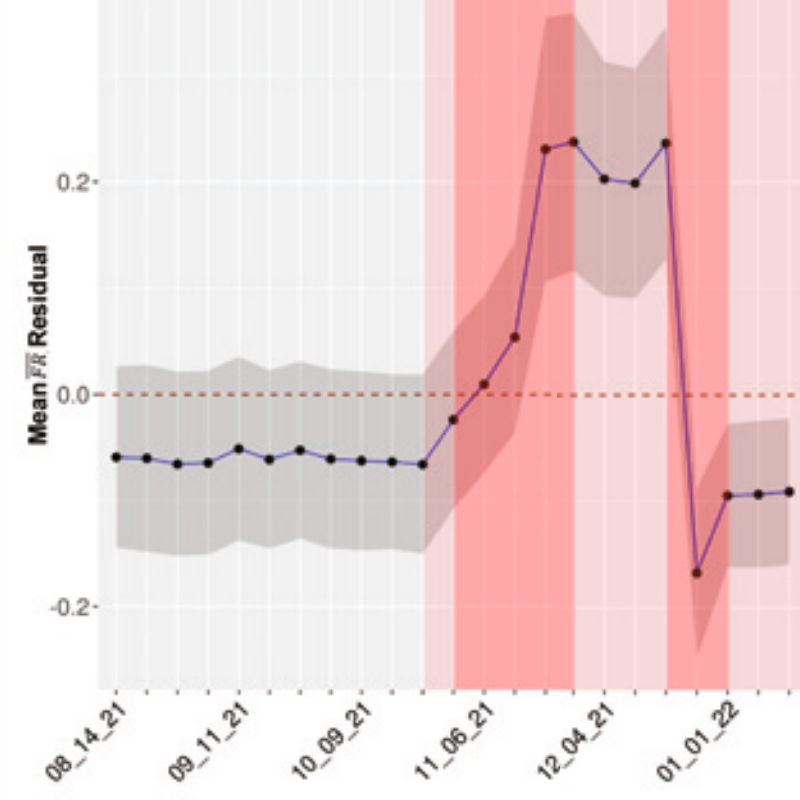New AI tool predicts viral outbreaks, using generative model
Oct. 12, 2023.
2 min. read
Interactions
AI tool predicts viral mutation and new variants
RELATED NEWS
A radical new AI tool called EVEscape predicts viral mutations and new variants, using evolutionary biological information.
In tests, it successfully predicted the most concerning new SARS-CoV-2 (severe acute respiratory syndrome coronavirus 2) variants that occurred during the COVID-19 pandemic, according to its developers at Harvard Medical School and the University of Oxford. EVEscape can also help inform the development of vaccines and therapies for SARS-CoV-2 and other rapidly mutating viruses.
Model predicts changes about likely variants every two weeks
EVEscape has a generative model of evolutionary sequences that predicts changes that can occur to a virus, along with detailed biological and structural information about the virus. Together, they allow EVEscape to make predictions about the variants most likely to occur as the virus evolves.
In a study published Oct. 11 in Nature, the researchers show that if it had been deployed at the start of the COVID-19 pandemic, EVEscape would have predicted the most frequent mutations and identified the most concerning variants for SARS-CoV-2. The tool also made accurate predictions about other viruses, including HIV and influenza.
“We want to know if we can anticipate the variation in viruses and forecast new variants—because if we can, that’s going to be extremely important for designing vaccines and therapies,” said senior author Debora Marks, associate professor of systems biology in the Blavatnik Institute at Harvard Medical School.
From EVE to EVEscape
The researchers first developed EVE, short for evolutionary model of variant effect, in a different context: gene mutations that cause human diseases. In a previous study, EVE allowed researchers to discern disease-causing from benign mutations in genes linked to various conditions, including cancers and heart rhythm disorders.
Designing mutation-proof vaccines and therapies
The team is now applying EVEscape to SARS-CoV-2 in real time, using all of the information available to make predictions about how it might evolve next.
The researchers publish a biweekly ranking of new SARS-CoV-2 variants on their website and share this information with entities such as the World Health Organization. The complete code for EVEscape is also freely available online.
They are also testing EVEscape on understudied viruses such as Lassa and Nipah, two pathogens of pandemic potential for which relatively little information exists.al.
Funding for the research was provided by the National Institutes of Health (GM141007-01A1), the Coalition for Epidemic Preparedness Innovations, the Chan Zuckerberg Initiative, GSK, the UK Engineering and Physical Sciences Research Council, and the Alan Turing Institute.
Citation: Thadani, N. N., Gurev, S., Notin, P., Youssef, N., Rollins, N. J., Ritter, D., Sander, C., Gal, Y., & Marks, D. S. (11-Oct-2023). Learning from prepandemic data to forecast viral escape. Nature, 1-8. https://doi.org/10.1038/s41586-023-06617-0 (open-access)
Let us know your thoughts! Sign up for a Mindplex account now, join our Telegram, or follow us on Twitter.

.png)

.png)


.png)





0 Comments
0 thoughts on “New AI tool predicts viral outbreaks, using generative model”